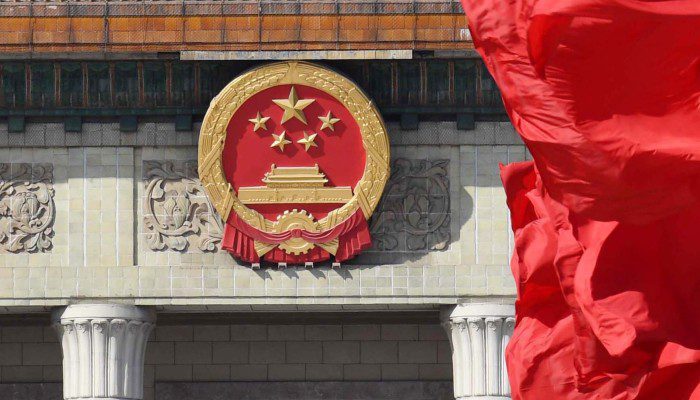The Ministry of Commerce has released an enforceable order citing the availability of a complaint mechanism for foreign-invested enterprises in China. Recently, the country has also improved its dealings and relationship with foreign entities and countries, including its system of import and export.
Read our previous article on Importing/Exporting to China – Taxes & Duties
In its move to improve the relationship and dealings with foreign investment, the Ministry of Commerce released the Rules on Handling Complaints of Foreign-Invested Enterprises effective on October 1, 2020.
The goals of these rules include:
- Handle complaints of foreign-invested enterprises in a timely and effective manner;
- Protect the legitimate rights and interests of foreign investors; and
- Continuously optimize the foreign investment environment.
What does “complaints of foreign-invested enterprises” mean?
With the new rule, foreign-invested enterprises or foreign investors can file complaints against administrative agencies and their staff members. They may also report on issues concerning the investment environment as well as suggest improvements in relevant policies and measures. However, these complaints do not include foreign-invested enterprises’ or foreign investors’ applications for coordination to settle civil and commercial disputes with other natural or legal persons, or other organizations. The complainant must represent the facts, provide evidence, and actively assist the handling agencies.
Who is responsible for monitoring the complaint mechanism?
The National Center for Complaints of Foreign-Invested Enterprises is responsible for handling the complaints from foreign-invested enterprises or foreign investors. This agency is temporarily seated at the Investment Promotion Agency of the Ministry of Commerce. One of its major tasks is to supervise the complaint mechanism at the local levels. Furthermore, it is also responsible for accepting relevant complaints and suggestions to improve the investment environment.
The complaint mechanism process: filing and acceptance procedures
Foreign-invested enterprises and foreign investors who wish to file a complaint must undergo the following procedures:
-
Written Complaint
Complainants may submit their written complaint materials on-site, or by letter, fax, e-mail, online application system, etc. Pertinent agencies who are responsible for receiving these complaints are required by law to publish their contact information to help the complainants in contacting them.
-
Complaints about administrative actions of administrative offices and their staff members
The complainant’s name and relevant contact person and information must be indicated on the complaint materials, including relevant identity certificate, and the date of filing. If the complaint is to be filed by persons other than the complainant, power of attorney (specifically include the entrusted matters and the scope and time limits of effectivity) issued by the complainant and the identity certificate of the entrusted party shall also be submitted.
The compliant material must also indicate the name of the administrative office or agency, its address, postcode, relevant contact information, and contact person. When specifying the issues and claims of the complaint, the relevant facts, evidence, and reasoning, as well as the relevant legal basis (if applicable), must be indicated in the written complaint.
-
Complaints about the investment environment and specific suggestions on policies and measures
The complaint materials shall include all relevant information written above, and must be written in Chinese. If relevant evidence and original documents are written in foreign languages other than Chinese, accurate and complete Chinese translations shall be submitted.
In what instances the complaint might not be accepted?
- The complainant is not a foreign-invested enterprise or foreign investor;
- The written complaint is not within the scope of complaints already specified above and not within the acceptable scope of the agency handling the complaints;
- The complaint materials fail to meet the requirements for a written complaint. Note that the agency to which it had been submitted shall notify the complainant within 7 working days after receiving the complaint materials. The single written notice will indicate the materials to be supplemented or corrected, and the time limits applicable. The complainant must make supplementation or corrections within 15 working days.
- The complaint has no factual basis or the evidence is forged and/or altered;
- The complaint submitted to the same agency is a refiled version without any new evidence or legal basis submitted;
- The matter submitted had already been previously dealt with by the same or higher agency.
Meanwhile, the complaint handling process may be terminated in case of the following circumstances:
- The handling agency and the complainant terminate the process;
- There is no material evidence, or the complainant’s claim has no legal basis;
- The complainant no longer meets the identity qualification; and
- No justifiable reason for not participating in the handling process upon contact by the handling agency.
The mechanism for complaint handling
Once the complaint is accepted, the pertinent agency shall conduct sufficient communications with both parties involved. They would also:
- Collect information;
- Coordinate to handle complaints following the law; and
- Work for an appropriate solution for the complaint;
- (may) request the assistance of the complainant by asking for further explanations, providing documents, etc.;
- (may) request the complainee to provide information;
- Strive to complete the complaint handling process within 60 working days (although the time limit can be extended as appropriate if the complaint involves multiple departments or complicated matters).
Both the complainant and complainee must cooperate as requested. The agency may organize meetings, and invite both parties to state their opinions and discuss possible solutions to settle the conflict. The handling agency may also seek expert and professional opinions depending on the issue at hand.
Once both parties have come into terms, they will sign a settlement agreement specifying the contents of the settlement. Moreover, this shall be binding under the law. If the complainant is dissatisfied with the results, he or she can appeal to the handling agency at a higher level.
Article 41 of the Implementation Regulation of the Foreign Investment Law of the People’s Republic of China shall apply if the complainee fails to implement the effective settlement agreement.
Complainants in the Hong Kong Special Administrative Region, the Macao Special Administrative Region, the Taiwan region, and Chinese citizens residing overseas will also follow the same rules as stipulated.
Punishment
As mentioned above, non-compliance will be dealt with in accordance with the Foreign Investment Law. That is, they will assume legal liability per the rules of the FIL if maltreatment of the legitimate rights of foreign-invested enterprises or foreign investors occurs.
During the handling process, if the agency (and its staff) supposedly taking care of the enterprise maltreats the complainant in the following ways, then they will be liable in accordance with Article 39 of the FIL. The following are the punishable acts under FIL.
- Abuses their power;
- Neglects duties;
- Engages in malpractices for personal gain;
- Discloses or illegally provides others with any trade secrets, confidential business information, or personal privacy obtained during the handling process.
Also worth noting that Article 30 of these rules states that “No entity or individual may suppress or retaliate against complainants who raise matters or apply for coordination to resolve matters through the complaint mechanism of foreign-invested enterprises”.
Conclusion
The new complaint mechanism aims to better protect foreign investors and foreign-invested firms. Thus, the Chinese government hopes that foreign companies will feel more ease with doing business. The complexity of the business environment in China often brings unforeseeable challenges to foreign businesses or investors. Despite that, the country has been taking huge steps to break down internal barriers.
Contact us
If you want to have more understanding of Chinese laws and business regulatory landscape in China, contact us to avail of our special services ranging from tax, accounting, financial advisory, and company incorporation.
Moreover, if you are interested to know more about our latest technological solution, go to our Kwikdroid page to check the prices and packages we offer, no matter the size or type of company.







